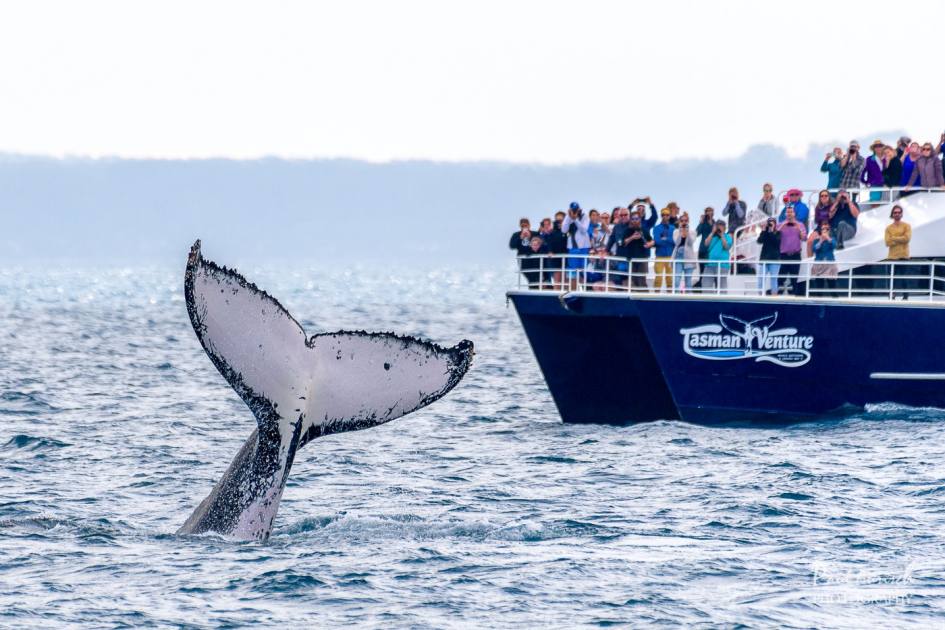
A mother Humpback Whale (Megaptera novaeangliae) lob tailing in front of the delegates of the World Whale Conference 2019 held in Hervey Bay, Queensland, Australia. Photo credit: Paul Aurisch Photography.
Hello beautiful people!
The World Whale Conference 2019 has come to an end and it is time for us to draw conclusions about our participation. I chose to quote Uncle Glenn, the aboriginal elder from Butchulla tribe that greeted us at the conference opening session, who asked to the delegates: ‘What’s in it for us?’. Aboriginal people, rightfully, question how tourism, and whale-watching in particular, on their own lands and waters will ever include and benefit them. We, Terra Azul and people living on São Miguel Island, want to understand how the great amount of scientific information and whale-watching companies’ experiences shared at this venue can help us in the complicated path towards a sustainable future.
One of the most interesting session for us was indeed the debate over the future of swim-with-cetacean tourism. For more than a decade, such activity has been at the center of a controversy as several researchers and conservationists expressed concerns about the potentially detrimental effects for the whales and dolphins involved. However, only in recent years several peer-reviewed studies have been published and provided scientific evidence that swim-with-dolphins and whales can disrupt animal vital behaviors, especially if poorly regulated and/or where the level of exposure to vessels and swimmers is particularly high. These findings even led to the ban of such activities in some countries and specific locations such as Bay of Islands, New Zealand.
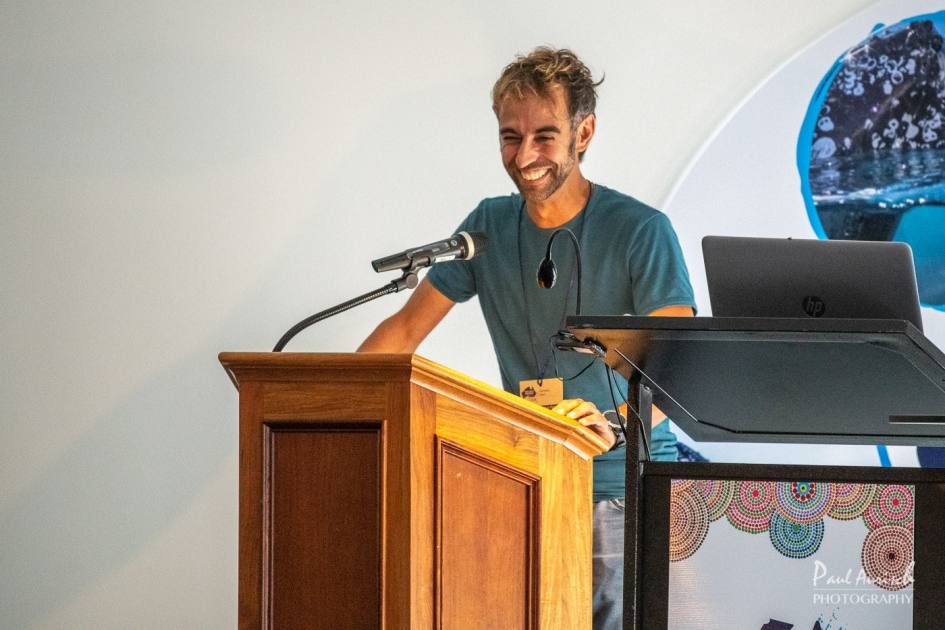
Lorenzo, main guide at Terra Azul, presenting the results of his PhD research on the effects of swim-with-Humpback Whale tourism activities in Vava’u, Kingdom of Tonga (Fiori et al., 2019). Photo credit: Paul Aurisch Photography.
During the conference, a number of speakers presented the results of their research projects aiming to understand the effects of swim-with-cetaceans tourism on the behavior of the animals, the levels of compliance of tour operators to existing regulations and the reasons behind the rising public demand for these activities. Researchers from Reunion Island showed how a mother Humpback Whales (Megaptera novaeangliae) responded to swimmer approaches with agonistic behaviors (i.e. tail swish, peduncle throws, pectoral swish) that they use also against predators such as Killer Whales (Orcinus orca). It was quite impressing to note that I have documented similar Humpback Whale responses to swimmers also during my PhD research project in Vava’u, Kingdom of Tonga.
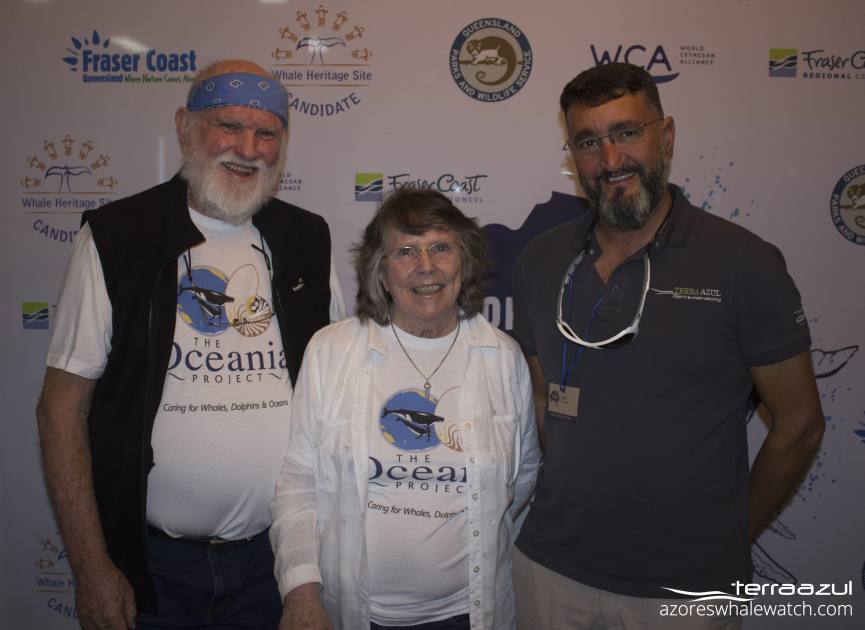
Wally and Trish Franklin with Miguel Cravinho, founder of Terra Azul. Wally and Trish dedicated 30 years of their lives to research on Humpback Whales in Hervey Bay and were keynote speakers at the conference. On top of sharing their huge experience, they also participated to an expert panel with Prof Mark Orams, Dr Alistair Birtles and Dr Paul Forestell. The panel expressed concerns for the the increase of swim-with-whales tourism activities in important resting and breeding grounds for Humpback Whales.
Other researchers focused more on the social aspect of whale-watching and how media influence the expectations of people wishing to approach wildlife in the wild. Moreover, another session was dedicated to the educational power of whale-watching and how to promote conservationism through the beautiful experience that we can offer to our guests both as company and guides.
To sum up, we have a great opportunities as Terra Azul and as People, but we also have great social and ecological responsibilities. We have the power to encourage eco-centric attitudes and more sustainable ways of living on our beautiful planet. But we also have the duty to lead the way and take action to reduce our impact on the resources that we share, whales and dolphins included.
Finally, I would like to take this chance to thanks World Cetacean Alliance and Fraser Coast Tourism for organizing this amazing venue and share their important experience with us. Obrigado! 🙂












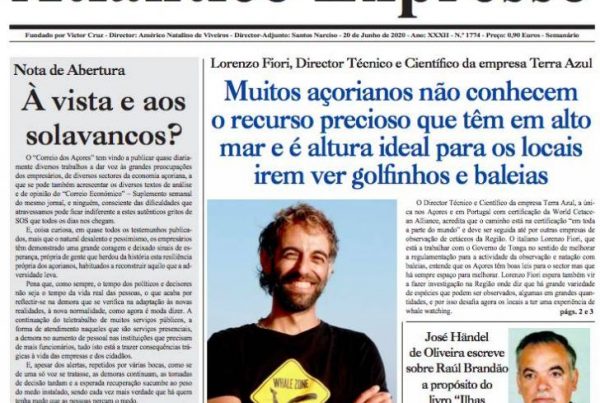
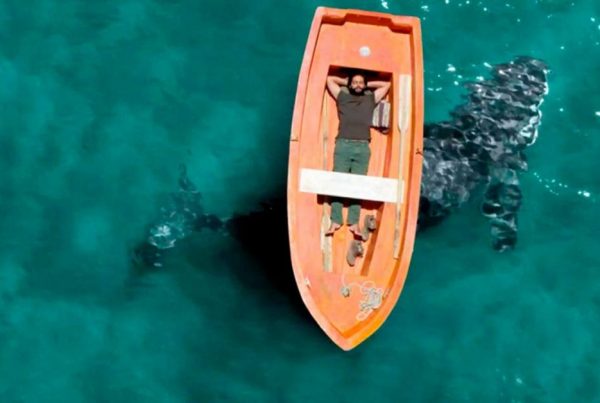
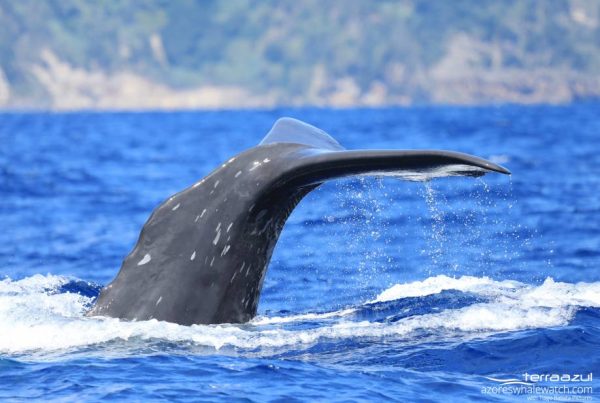



Your thoughts on this?